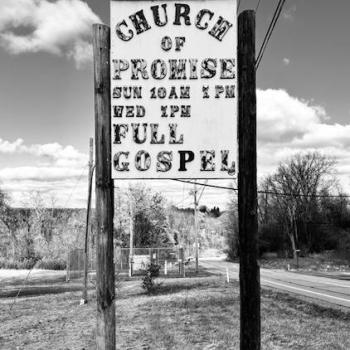Editors' Note: This article is part of the Patheos Public Square on Homeschooling and Public Education. Read other perspectives here.
My parents didn't choose homeschooling via the usual routes. Well-educated Lebanese immigrants, they were deeply skeptical about the U.S. educational system. Homeschooling didn't impress them either at first; the idea of foregoing tradition and teaching their kids at home seemed risky. However, when a friend encouraged my mother to try out some curriculum, Mom thought "Why not?" and gave it a go just for kicks and giggles. When it worked well enough to get me hooked on reading at an early age, she and my dad decided to try it out for another year. Twenty years later, they finished homeschooling both their girls all the way through high school. The detailed transcripts, scope and sequences, and lesson plans we still have in the garage are testament to my parents' courage and determination to do what they thought best for their children.
Since they had just recently moved from Lebanon, it wasn't actually faith choices or political rhetoric that motivated my parents to homeschool. They homeschooled simply because it worked for us. That also gave us a healthy distance from the narratives prevalent among California homeschoolers in the 1990s. Dad and Mom felt free to make their own choices regarding our education, and they began to think about how to develop students who were strong, independent, and self-motivated thinkers in their own right.
The role faith played in our lives began to grow in our early years, however. My parents became increasingly drawn toward the truths of the Bible, and they made a profession of faith before I was seven. We had always gone to church, as church attendance and basic deference to God are as much a part of being Lebanese as hummus is, but professing faith in Jesus Christ as Savior isn't a cultural rite of passage.
However, my parents made a choice that required an enormous amount of faith and courage. Though we grew up steeped in church and Christianity, my parents made the choice not to gear our lives and our homeschool toward coercing my sister and me to make a declaration of faith. It was still their primary desire for us, but they didn't think they could engineer that desire in us. They trusted that God would use that reverence for independent thought they instilled in us to draw us closer toward him.
He did, and that has become the greatest motivation for a personal love of learning that has Christ as its object. I'm firmly convinced that even though human reason is not perfect or completely dependable, we can actually know truths about God. So every hour of study is precious for what it may reveal about Christ the Creator and Savior to those who seek.
Looking back at my homeschooling experiences reveals a conviction that has grown as I have gotten further away from my high school graduation: homeschooling is neither a religious nor a moral obligation. Parents' obligations are to raise up their children in the way they should go, and if God lays it on parents' hearts to do that by homeschooling that's great, but homeschooling is far from the only, or even the most important, way of doing that. The more people I meet outside homeschooling circles, the more it becomes apparent that God is not limited by your education. Far from it.
That idea has proven really freeing to me. I spent the last year among other educators at the Harvard Graduate School of Education, and was—often and deeply—moved by their heart for their students. The education system may be badly flawed, but it's flawed as a system, not necessarily because of the people in it. In fact, the educators I was with consistently pour their heart and soul into their students and what they do. Given the limits placed on them, most educators are trying to wake their students up to their potential and the potential of the world around them—which is what my parents wanted, and what I'm willing to bet the vast majority of parents around the world want for their kids too.
What homeschooling in particular has to offer is the ability to articulate a vision for your students and provide the environment for them to pursue it with all their heart, soul, and mind. Homeschooling does not articulate that vision for the parents, however, and the vision has to be built up through a number of choices requiring care and intentionality on the part of the parents. On the plus side, there is also no one right way to homeschool (though it is important to note that there are wrong ways to homeschool—we all know the stories). Just as every individual is unique, every family is unique; just as every family is unique, every family has the freedom to craft a homeschool that celebrates the interests and abilities of all involved. It is difficult, but nothing to be scared of (especially now, when support networks, the plethora of curriculum options, and the expansion of homeschooling to nonreligious circles has gone far in normalizing homeschooling and blurring the lines between homeschooling and traditional schools).




